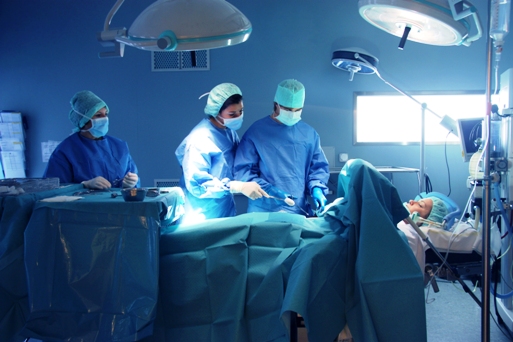About Your Surgery

When you know you are going to have a surgical procedure, it's best to be prepared ahead of time - before you leave your home. We offer pre-admission and pre-surgical testing to help ensure you are properly prepared for your procedure and to ease any concerns you may have.
Inpatient or Outpatient Surgery
Depending on the complexity and necessary recovery time of your operation, your doctor will also determine whether your procedure requires inpatient or outpatient surgery. If you are scheduled to have outpatient surgery, you will not be hospitalized overnight and will be able to return home for recovery. It is also recommended that you have a family member or friend available to drive you home.
Regardless of whether you have inpatient or outpatient surgery, you will be moved to a recovery room immediately after your surgery for continued monitoring and discharged once you have been cleared by your doctors.
During your appointment at any of Crozer Health’s Pre-Admission Testing Centers, you will complete all registration, testing, health history reviews, and teaching in one convenient visit.
Before Your Surgery
Fasting
Fasting is strongly recommended up to 12 hours before your scheduled surgery. Do not eat or drink anything after midnight the night before your operation unless you have received other directions from a Crozer Health healthcare professional. This includes all food and drink as well as ice, water, chewing gum and candy. Your surgery may be canceled if you have not followed this rule.
This is done to avoid complications during the surgical procedure and ensures your safety throughout the process. Contrary to what many think, this does not have anything to do with nausea and vomiting experienced after surgery. When a patient is under anesthesia, it is common for the body’s reflexes to relax. This relaxation can cause any food or drink in the stomach to travel backward into the esophagus, mouth, or even the lungs. This can lead to a condition called aspiration pneumonitis.
Medications
All medications and prescriptions you are currently taking should be discussed with your anesthesiologists during your pre-anesthesia meeting and interview. Medications used specifically for any type of blood condition (blood clots, high blood pressure) should especially be discussed with your anesthesiologist. These can include aspirin, diuretics or diabetic medication.
It is important to disclose all of this information before your surgery so your anesthesiologist can make the best decisions for your health and safety while administering anesthesia.
Arrival
If you will be admitted to the hospital after your surgery (inpatient surgery), you should arrive at the hospital at least 1 ½ hours before your scheduled surgery time. Patients having outpatient surgery should arrive one hour before their scheduled time.
After Your Procedure
After your procedure, you will be taken to the Post Anesthesia Care Unit (PACU), or recovery room where you will be monitored and cared for until you are ready to go home. The duration of time you spend in the PACU usually ranges from 30-90 minutes.
In the event of unforeseen complications, you may be admitted to the hospital for further evaluation and treatment.
You must have a responsible adult available to take you home.
The Center nurse will review your home care instructions with you and/or your escort, and provide you with a written copy of these instructions.
It is not unusual to feel slightly dizzy or sleepy after receiving anesthesia and undergoing surgery.
At Home
- Have a responsible adult with you for at least the first 24 hours.
- Do not drive or operate heavy machinery.
- Follow the special instructions provided to you by your physician and or the staff.
- Do not take any medications without your physician’s approval.
- Do not drink any alcoholic beverages.
- Call your physician with any unusual symptoms.
- A Center nurse will call you the first business day after your procedure.
